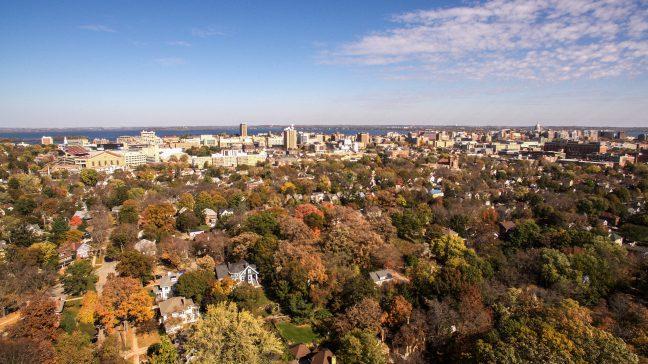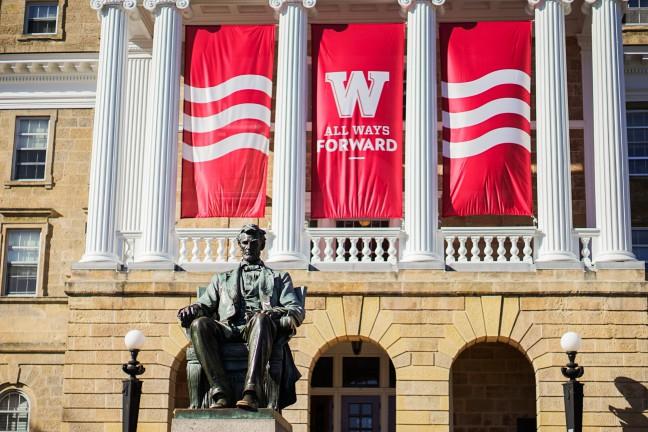Many, or at least some of you, may have read last week’s column titled “‘Slow Food’ movement is unsustainable.” In the article, the author, Jared Mehre, introduced many personal arguments about his own beliefs and concerns surrounding “the scam of organic food,” which he stated as the mission of both Slow Food UW and the Real Food Week — or the collective introduced in the column as “misguided hippies.”
I would like to respond on the behalf of Real Food Week and its sponsoring organizations: FH King Students for Sustainable Agriculture, Slow Food UW-Madison and the Office of Sustainability; we are all misguided hippies in the end.
Real Food Challenge is a national organization that is hoping to leverage the strength of students to support greater university procurement of Real Food. Real Food is defined by the four categories of local/community-based, fair, humane or ecologically sound. Surprisingly enough, there is no mention of organic in the definition. While organic may be a measure of the production of “ecologically sound” foods, Real Food in no way builds its foundation off organic certification labels alone.
This past week, Real Food Week, students organized to promote the awareness and access to community-based, sustainable and fairly-sourced foods. I would like to explain why having this open dialogue about food matters at UW.
There are issues in the American food system; this must be accepted. The number of farmers has decreased so significantly that it is no longer listed as an occupation on the U.S. Census. Yet these individuals are expected to feed an ever-increasing number of people. However, many of these farmers are not growing food you would recognize in a produce section — only 2 percent of American farmland was used for vegetable production, accounting for 14 percent of all crop receipts.
While I agree that solely buying organic products is a band-aid solution to a much larger problem, the organic trend represents a movement of consumers and producers toward awareness. Consumers, aided by producers who are choosing to emphasize local markets and ecologically sound practices, are forging a food movement that does not deplete land and community. Emphasizing the value of community-based/local and ecologically sound foods, these direct markets are contributing significantly to social justice by eliminating the hidden external costs that leave farmers at a deficit, communities food insecure and local economies weakened.
The Wisconsin Food Hub Cooperative is a prime example of a collaborative process of both organic and conventional farmers coming together to leverage themselves above an industrial food system by finding alternative markets that allow them to decide the value of their products. Organic Valley, a dairy cooperative in Wisconsin, has used organic certification as a means of evading fluctuating milk prices that leave farmers susceptible to economic hardships. These are the farming organizations I would hope UW would be supporting and sourcing from; unfortunately they are not.
Mehre falsely cited an article from the Maine Organic Farmers and Gardeners Association, while saying that there are no health benefits to organic. However, this same article speaks to the nutritional difference of organic milk, stating “a growing body of research shows that organic foods tend to have higher concentrations of nutrients and antioxidants than conventionally grown foods.” Let’s have a dialogue about organic practices, which have been proven by a 30-year study from the Rodale Institute to match or outperform conventional systems (especially under the increasing environmental stresses from global climate change) while building soil organic matter, using 45 percent less energy and emitting 40 percent less greenhouse gas.
Wendell Berry once said, “Eating is an agricultural act.” Real Food Week was meant as a reminder of this truth. Whenever we sit down to the table we bring with us our own paradigms about food, and the extent to which we value it, its producers and the soil that bears it. I believe that UW has a responsibility to promote a food system that engages a community, supports its farmers, treats the workers and animals humanely and doesn’t deplete the earth. This is the conversation I am having when I sit down to eat; which one are you having, Mr. Mehre?
Paige Kelly ([email protected]) is a senior majoring in agronomy and community and environmental sociology. She is the Outreach Director and the Program Director for FH King Students for Sustainable Agriculture.




















